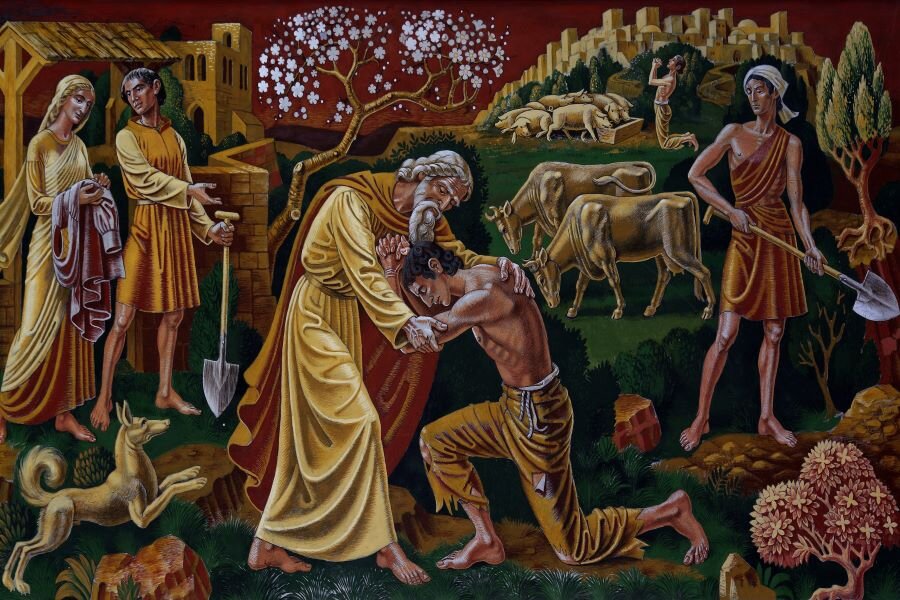
God Is Merciful
03-27-2022Weekly ReflectionFr. Tony OkoloTraditionally today being the fourth Sunday of Lent is known as Laetare Sunday. Calling us to rejoice having gone mid-way into our Lenten observance. The color of the vestment is rose but if for any reason the church cannot afford it they could still use purple. The first reading from the book of Joshua presents us with Joshua who finally led the people of Israel into the promised land. They reached the promised land after many decades of challenges, doubt, loss of hope and difficulties. God kept the promises He made with their ancestors Abraham, Isaac and Jacob that He would be their God and they would be His people. God has kept the promise He made to them long ago that He would bring them to a land flowing with milk and honey. This finally happened under the leadership of Joshua. Thus, Joshua becomes like a pro type of Jesus who comes to bring salvation, that’s why the meaning of Joshua in Greek is salvation.
The event reiterates a faithful God who keeps to His promises despite the unfaithfulness of His people. The journey into the promise land is a passage from slavery to freedom which is our focus as people on a pilgrim in this world.
According to John Bergsma “the Land of Canaan which the people finally entered is a symbol of and type of heaven, the new life in God’s presence. The manna in the wilderness is a type of the Eucharist, the bread from heaven which sustains us through our journey in the desert of this present life. Yet the Eucharist will not remain forever, when we enter into God’s presence in the life to come, the Eucharist will pass away as we feed on the direct visions of God.” That is exactly what happened in the first reading when the people entered into the land, they ate the fruit of the land and no longer manna.
When we enter heaven, we embrace God’s face to face and there would be no need for the Eucharist. The gospel parable of today is a familiar story many of us have read many times. The parable is a story of a man and his two sons. The younger son demands the share of his inheritance from the father and goes away and squandered it in a life of dissipation. In the first instance, for the boy to demand for the share of his father’s inheritance while his father is still alive is a grave insult before the father. What it means is that he wished his father dead. Thus, not too long after he squandered his share there was great famine in the land that the son could not afford anything other than to hire himself out where he feeds on the food meant for the pigs. Looking at this parable it shows how the boy left the place of honor he occupies in his father’s kingdom to a place of disgrace with pigs. Whenever we fall into mortal sin it is a deliberate decision to close our minds to God which at last brings us shame and disgrace. The good news is that when the boy came to his senses he decided to go back to his father. At this time, he was not expecting any better position in his father’s house, but to his greatest surprise he was given more than a welcome.
The idea of coming to one’s senses becomes a core message of the parable as that brings a turning point that makes one go back to where he ought to be. When we fall away from grace we need to come back to our senses and return back immediately to God. We may be on a wrong track, but once we come back to our senses and return back to God, He welcomes us with open arms, prepares a feast for us not withstanding how far we may have gone astray. The attitude of the father is the attitude of a merciful God who is less interested in our story of the reason we went astray. God simply wants us to reconcile with Him in love.
May we recognize the voice of God calling us to come back to our senses and He would give us a royal welcome.
Happy Sunday to you,
Fr. Tony Okolo
BACK TO LIST